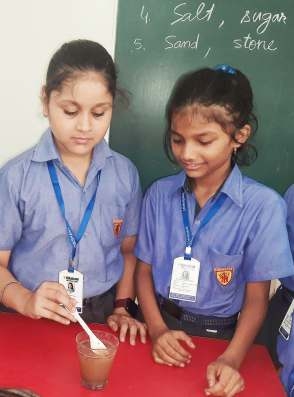
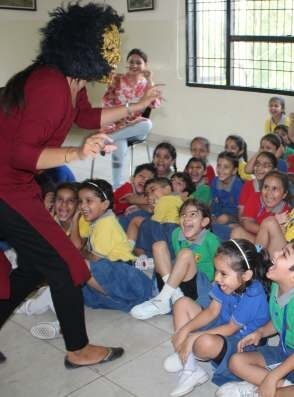
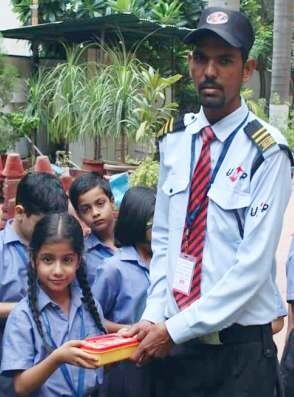
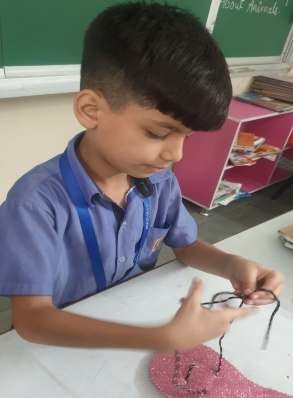

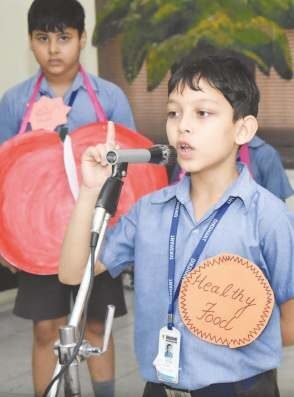
Children are now ready for more formal education, and their world expands beyond the self. They are prepared to further explore and expand their horizons. At this stage, they begin to grasp complex concepts and connect with the real world through academic domains like reading, writing, and numbers.
The objective at this stage is to kindle their imagination, build their capacity to think, and make them flexible and self-reliant.
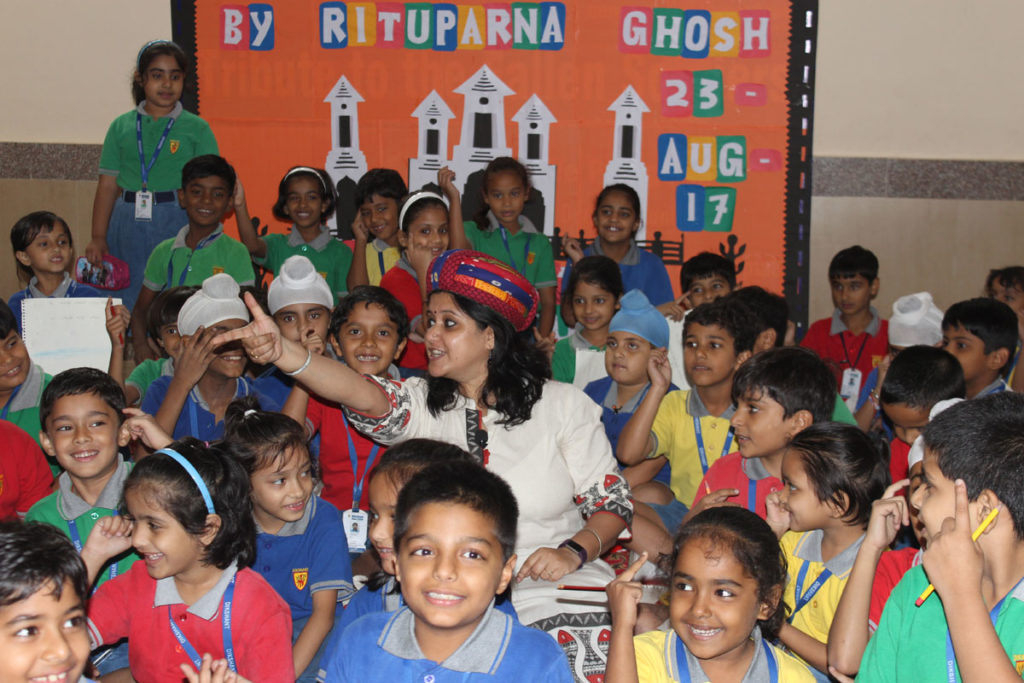
To fully develop students’ capabilities, the school adopts a continuous and comprehensive evaluation system. The entire curriculum is divided into different units, which are assessed on a monthly basis. The learning outcomes that a child is expected to achieve by the end of each month are clearly defined in advance.
Students’ knowledge, understanding, and skills in each topic are evaluated through an ongoing and regular process. Assessment of a student’s learning occurs through consistent teacher-student interactions and activities that take place both inside and outside the classroom.
| Format | Nature |
|---|---|
| Paper and Pencil Tests | Written responses based on individual’s learning of the topic – Can be Objective types, Fill in the blank, True-False, Label a drawing, Matching, Multiple choices, short answer, long answers (wherever applicable) etc |
| Performance Tasks/ Activities | Require students to perform activities in the classroom based on their learning experience of the topic. |
| Oral Reports | Assess individual and group performance before, during, and after the topic.Require communication by the student that demonstrates his/her understanding of the concept. |
| Checklists | Monitor and record anecdotal information on the basis of daily observations, the response of the child in classroom etc. |
| Investigative Projects and Class Presentations | Require students to explore a topic in class and present either in groups or individual |
| Extended or Unit Projects | Require the application of knowledge and skills in the form of practical projects, models, illustrations or drawings, based on the topics covered in class |
Dikshant was founded in 2002 with just 35 students and a small team of dedicated teachers. At Dikshant, we are committed to nurturing talent, expanding horizons, and fostering personal growth in every student.
QUICK LINKS
Let’s Connect
Dikshant Global School
Savitry Green 2, VIP Road, Zirakpur, India.
dikshantglobal@gmail.com
(+91) 84276 64878
Dikshant International School
NH-22, Zirakpur-Panchkula Kalka Highway, Zirakpur, India.
dikshantint@gmail.com
(+91) 92572 14796
(+91) 97799 35504
Design and Developed by – IT Geek Studio
© 2025 All Rights Reserved